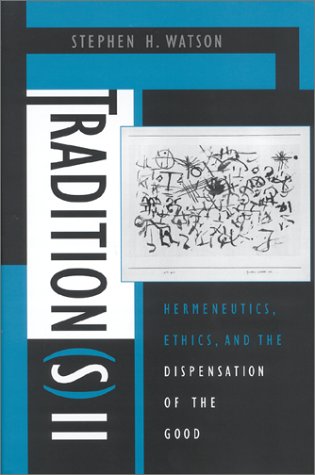Studies in Continental Thought
1 total work
In "Tradition(s) II", Stephen H. Watson engages post-Kantian continental philosophy in his continuing investigation into the concept of tradition which he began in his work "Tradition(s)". According to Watson, the problem of tradition has become explicit in twentieth-century philosophy, and is especially apparent in the work of Heidegger, Gadamer, Husserl, Benjamin, Adorno, Levinas, Kristeva, and Derrida, among others. By formulating a series of dialogues between twentieth-century philosophers and their predecessors, Watson articulates the issues and concerns surrounding tradition and traditionality.Taking on topics such as the hermeneutics of the self, the rationality of tradition, the pluralistic nature of historical interpretation, and the question of the 'other,' Watson emphasises the importance of classical accounts of ethical and political discourse for twentieth-century philosophy and today's multi-cultural world. Watson extends his analysis of tradition to include the problems of meaning and narrative and the nature of the self. He also considers the meaning of the Good and how Good is dispensed in the world.
By questioning past philosophical narratives and their influence on modern and postmodern philosophy, Watson brings fresh perspective to the complex meanings of tradition for a pluralistic world.
By questioning past philosophical narratives and their influence on modern and postmodern philosophy, Watson brings fresh perspective to the complex meanings of tradition for a pluralistic world.
